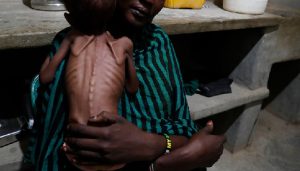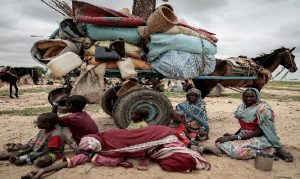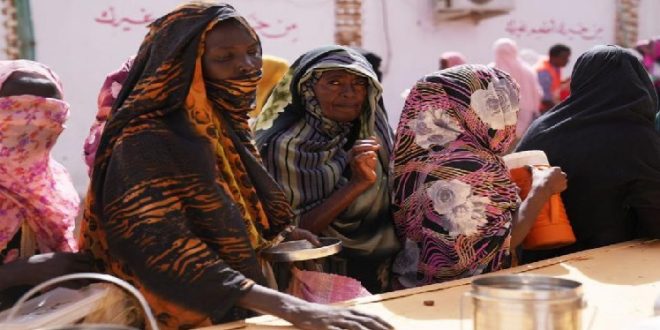26-02-2025
KHARTOUM/ WASHINGTON: The freezing of US humanitarian assistance has forced the closure of almost 80% of the emergency food kitchens set up to help people left destitute by Sudan’s civil war, the media learned.
Aid volunteers said the impact of President Donald Trump’s executive order halting contributions from the US government’s development organization (USAID) for 90 days meant more than 1,100 communal kitchens had shut.
 It is estimated that nearly two million people struggling to survive have been affected.
It is estimated that nearly two million people struggling to survive have been affected.
The conflict between the army and the paramilitary Rapid Support Forces has killed tens of thousands of people, forced millions from their homes and left many facing famine since it erupted in April 2023.
The kitchens are run by groups known as emergency response rooms, a grassroots network of activists who stayed on the frontlines to respond to the crises in their neighborhoods.
“People are knocking on the volunteers’ doors,” says Duaa Tariq, one of the emergency room organizers. “People are screaming from hunger in the streets.”
The Trump administration abruptly suspended all US aid last month to determine whether it was “serving US interests”, and moved to begin dismantling USAID.
The State Department has issued an exemption for emergency food assistance, but Sudanese groups and others say there is significant confusion and uncertainty about what that means in practice.
The normal channels for processing a waiver through USAID no longer exist, and it is not clear if cash assistance on which the communal kitchens depend will be restored, or only goods in-kind. According to some estimates, USAID provided 70-80% of the total funding to these flexible cash programs.
The closure of the majority of Sudan’s emergency kitchens is being seen as a significant setback by organizations working to tackle the world’s largest hunger crisis, with famine conditions reported in at least five locations.
 The network of communal feeding centres relied in the early stages of the country’s civil war on community and diaspora donations but later became a focal point for funding from international agencies struggling to access the conflict zones, including USAID.
The network of communal feeding centres relied in the early stages of the country’s civil war on community and diaspora donations but later became a focal point for funding from international agencies struggling to access the conflict zones, including USAID.
It’s a “huge setback” says Andrea Tracy, a former USAID official who’s set up a fund, the Mutual Aid Sudan Coalition, for private donations to the emergency rooms.
The former head of USAID, Samantha Power, had embraced the idea of working with the local groups rather than relying only on traditional channels like the UN.
Money had started to flow through international aid organizations that got US grants, but a channel for direct funding was in the works.
“It was ground-breaking,” says Tracy. “The only time that USAID had ever done this was with the White Helmets (humanitarian group) in Syria.”
For Tariq, the cut in US funding made it impossible to buy stock for the more than 25 kitchens in the six neighborhoods in the capital, Khartoum, she helps to service. She told media that left them unprepared for a worsening situation as the army advanced on the area, which has been held by the RSF since the conflict broke out.
There was widespread looting of markets as the RSF began to withdraw and the army tightened its siege.
Most of the kitchens have closed, she said. Some are trying to get food on credit from local fishermen and farmers, but very soon “we expect to see a lot of people starving”.
Here and in the rest of the country, Tracy’s Mutual Aid Sudan Coalition fund will do what it can to plug the gap left by USAID. (Int’l Monitoring Desk)
 Pressmediaofindia
Pressmediaofindia




